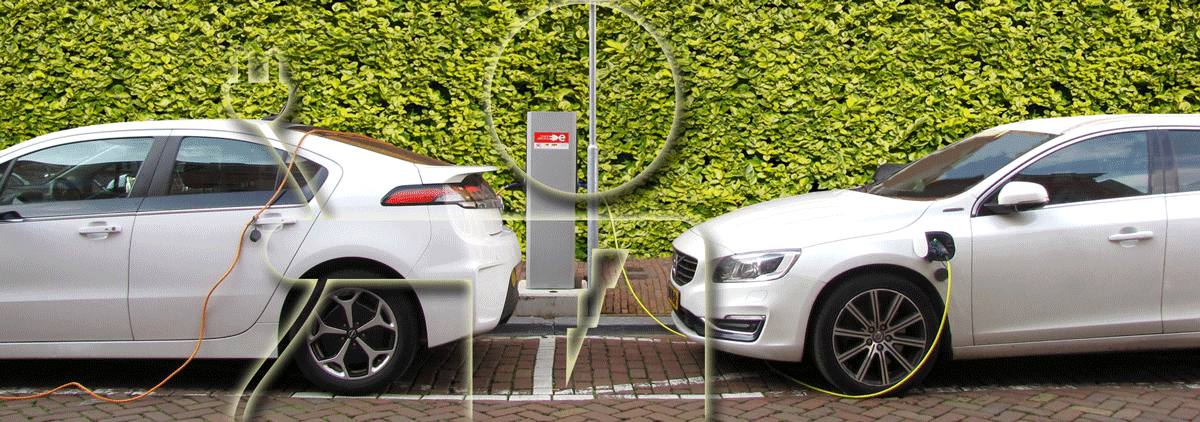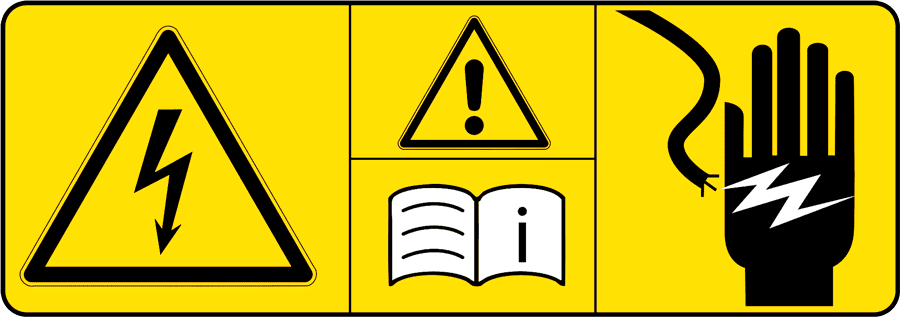(ev) high voltage training: Vehicle technology
TCS doesn’t just provide support: we do it for you!
HIGH VOLTAGE TRAINING (ev)
Mandatory high-voltage training Annual instruction as defined by ArbschG & DGUV V 1, according to DGUV Information 209-093
Seminar type: As a webinar or in-house at your location
Target group: instructed persons (FuP), specialist high voltage (SHV), electrical specialists for high voltage (ES HV)
Scope: Four teaching units
Price list: Download (click)
Seminar documents, performance review and certificates included
Offered teaching languages: German, English, Slovak, Norwegian (for other languages with experienced interpreters).
Qualification according to DGUV Information 209-093 Level 1E
(ev) high voltage training II)
Type of seminar: In-house at your location, possibly as a webinar
Target group: Employees who perform non-electrical work as well as work in an electrical context (such as replacement of enabled, intrinsically safe high-voltage components) on the high-voltage vehicle.
Scope: Four teaching units
Price list: Download (click)
Seminar documents, performance review and certificates included
Offered teaching languages: German, English, Slovak, Norwegian (for other languages with experienced interpreters).
Qualification according to DGUV Information 209-093 Level 2E Entry A
(ev) high voltage training III a)
Type of seminar: In-house at your location, partly as webinar if necessary
Target group: Employees with vocational training and work in a motor vehicle context without previous electrical engineering knowledge.
Scope: 10 days in two weeks.
Minimum number of participants: 4
Price list: Download (click)
Seminar materials, examination and certificates included
Offered teaching languages: German, English, Slovak, Norwegian (for other languages with experienced interpreters).
Qualification according to DGUV Information 209-093 Level 2E Entry B
(ev) high voltage training III b)
Type of seminar: In-house at your location, if necessary in parts as webinar
Target group: Employees with vocational training and work in a motor vehicle context with previous electrical engineering knowledge.
Scope: Five days in one week.
Minimum number of participants: 4
Price list: Download (click)
Seminar materials, examination and certificates included
Offered teaching languages: German, English, Slovak, Norwegian (for other languages with experienced interpreters).
Qualification according to DGUV Information 209-093 Level 2E Entry C
(ev) high voltage training III c)
Type of seminar: In-house at your location, if necessary in parts as webinar
Target group: Employees with vocational training and work in the motor vehicle context with electrotechnical qualifications.
Scope: three days
Minimum number of participants: 4
Price list: Download (click)
Seminar materials, examination and certificates included
Offered teaching languages: German, English, Slovak, Norwegian (for other languages with experienced interpreters).
Qualification according to DGUV Information 209-093 Level 3E
Type of seminar: In-house at your location, if necessary in parts as webinar
Target group: Employees with existing qualification according to DGUV I 209-093 level 2E or according to the old qualification DGUV I 200-005 level 2b or 2c
Scope: Three days
Minimum number of participants: 4
Price list: Download (click)
Seminar documents and certificates included
Offered teaching languages: German, English, Slovak, Norwegian (for other languages with experienced interpreters).
Qualification according to DGUV Information 209-093 Level 2E Entry C & 3E
Type of seminar: In-house at your location, if necessary in parts as webinar
Target group: Employees with electrical engineering qualifications (e.g. electrical engineers, electrical specialists in other fields)
Scope: five days
Minimum number of participants: 4
Price list: Download (click)
Seminar documents and certificates included
Offered teaching languages: German, English, Slovak, Norwegian (for other languages with experienced interpreters).
Qualification according to DIN VDE 0105-100 and DGUV Information 209-093 Level 1E
(EiP + (ev) high voltage level 1E)
Type of seminar: In-house at your location, if necessary in parts as webinar
Target group: Employees who perform non-electrical work and work in an electrical context (such as replacing high-voltage components) on the high-voltage vehicle, but also perform non-electrical work in an electrical context in the high-voltage environment that does not belong to the high-voltage system but, for example, to the workshop. (=FuP high voltage + EuP workshop)
Scope: two days.
Minimum number of participants: 4
Price list: Download (click)
Seminar materials, examination and certificates included
Offered teaching languages: German, English, Slovak, Norwegian (for other languages with experienced interpreters).
Electrical safety in electromobility – therefore (ev) high voltage training
Safe working on the intrinsically safe electric vehicle or high-voltage vehicle
Not all work in eMobility requires a full-fledged electrical specialist (ES) for electromobility in the sense of § 3 DGUV Regulation 3; in particular for non-electrical work, simple instruction in the form of a short high-voltage training course is often sufficient. We offer such a high-voltage qualification in accordance with DGUV Information DGUV I 209-093 (formerly DGUV I 200-005 / BGI 8686) at level 1E (high-voltage training II); this comprises an awareness of the basic functions and hazards of electric, hybrid and fuel cell vehicles in the scope of 4 hours.
Electrotechnical work according to work instructions on high-voltage systems
For electrical work, at least one electrical specialist for defined tasks (ESfdt) with a high-voltage specialization is required, this is also referred to as SHV: Fachkundige Person für Hochvoltsysteme (formerly Fachkraft für Hochvoltsysteme- FfHV) (high-voltage training III). The basic qualification required for this includes (ev) high voltage training of 24, 48 or 100 hours, depending on the target group. We offer these training courses according to DGUV Information 209-093 Level 2E i.V.m. DGUV Regulation 3 for all target groups; from electrical lay persons (100 hours according to DGUV Information 209-093 Level 2E Entry A) to electrical engineers (24 hours according to DGUV Information 209-093 Level 2E Entry C). The SHV may perform repetitive, defined activities on the HV (ev) system according to prior training and the employer’s assessment, following clear work instructions (i.e. checklist). The work on the HV (ev) high voltage system must not be continued in spite of the high voltage training as soon as an unforeseen event occurs or if it is necessary to deviate from the possibilities of the work instruction. The situation is different for electrical specialists with adequate Hocholt training.
Safety-relevant voltage range
Do not work under voltage. Live line work is defined as live work above the permissible touch voltage. In the case of electromobility, the limit of the permissible contact voltage according to ECE R 100 is 30 V AC and 60 V DC. According to § 8 of DGUV Regulation 3, live line work (LLW) may only be performed in exceptional cases and must be carefully carried out by specially qualified electrical specialists who have been certified as having no health risks by occupational health screening G 25 in accordance with DGUV Regulation 2, DGUV Rule 103-011 Item 3.2.1. The absolute necessity of the live line work, together with the reasons why it is not possible to work in a de-energized state, must be demonstrated, and the work instructions must be given in writing and clearly documented. Live line work according to § 8 DGUV regulation 3 is to be distinguished from working near active parts according to § 7 DGUV regulation 3! For employees who already have the high-voltage training level 2E, we offer the extended high-voltage training level 3E in the scope of three days to qualify them for LLW.
High-voltage competence in brief
Using the vehicle as a non-commercial driver and customer.
Non-electrical work; such as changing wheels, body work, acting as a test driver, working on the 12 V electrical system, replacing intrinsically safe high-voltage components when HV (ev) disconnected.
Disconnection and recommissioning according to checklist, replacement of high-voltage components, work on the high-voltage system in disconnected state.
Work independently on high voltage vehicle, troubleshooting, failure analysis and evaluation. Self-instruction in new types of vehicles after documentation is allowed.
Necessary live line work with the additional qualification LLW and only according to the conditions of § 8 DGUV regulation 3.

Instructed person (high-voltage training for iP)
All employees who work with hybrid, fuel cell or electric vehicles in development, production or workshop in the non-electrical area require level 1E high-voltage training in accordance with DGUV Information 209-093, DGUV Regulation 3 (high-voltage training I or II). The training is intended to sensitize employees to the handling of high-voltage systems in electromobility so that they can work safely on the vehicle. Employees should understand the concept as well as the basic technical structure and mode of operation of eMobility, but also be familiar with the markings of the high-voltage components. Whether changing the oil on a hybrid, changing the tires on an eMobile or connecting the analysis unit to the on-board computer of a fuel cell vehicle; they all have to take part in the high-voltage training course, which lasts three to four hours. We also offer this high-voltage training online.

Specialist high voltage (ev) high voltage training (SHV)
Anyone who has to electrically isolate or also commission high-voltage vehicles (hybrid, fuel cell or electric cars) or disconnect high-voltage plugs in the isolated state or replace high-voltage components such as the DC/DC converter must at least be qualified as a specialist high voltage (ev) according to DGUV Information 209-093 Level 2E, DGUV Regulation 3 (High Voltage Training III). The focus of the high-voltage training is on the safe performance of the assigned electrical engineering activities on the high-voltage vehicle for oneself and others. Not only functional information is imparted, but also the basic understanding of electrotechnical terminology, mode of operation and hazards. Depending on the previous training always to be taken into account, this (ev) high voltage training must comprise a scope of 24 to 100 teaching units.
